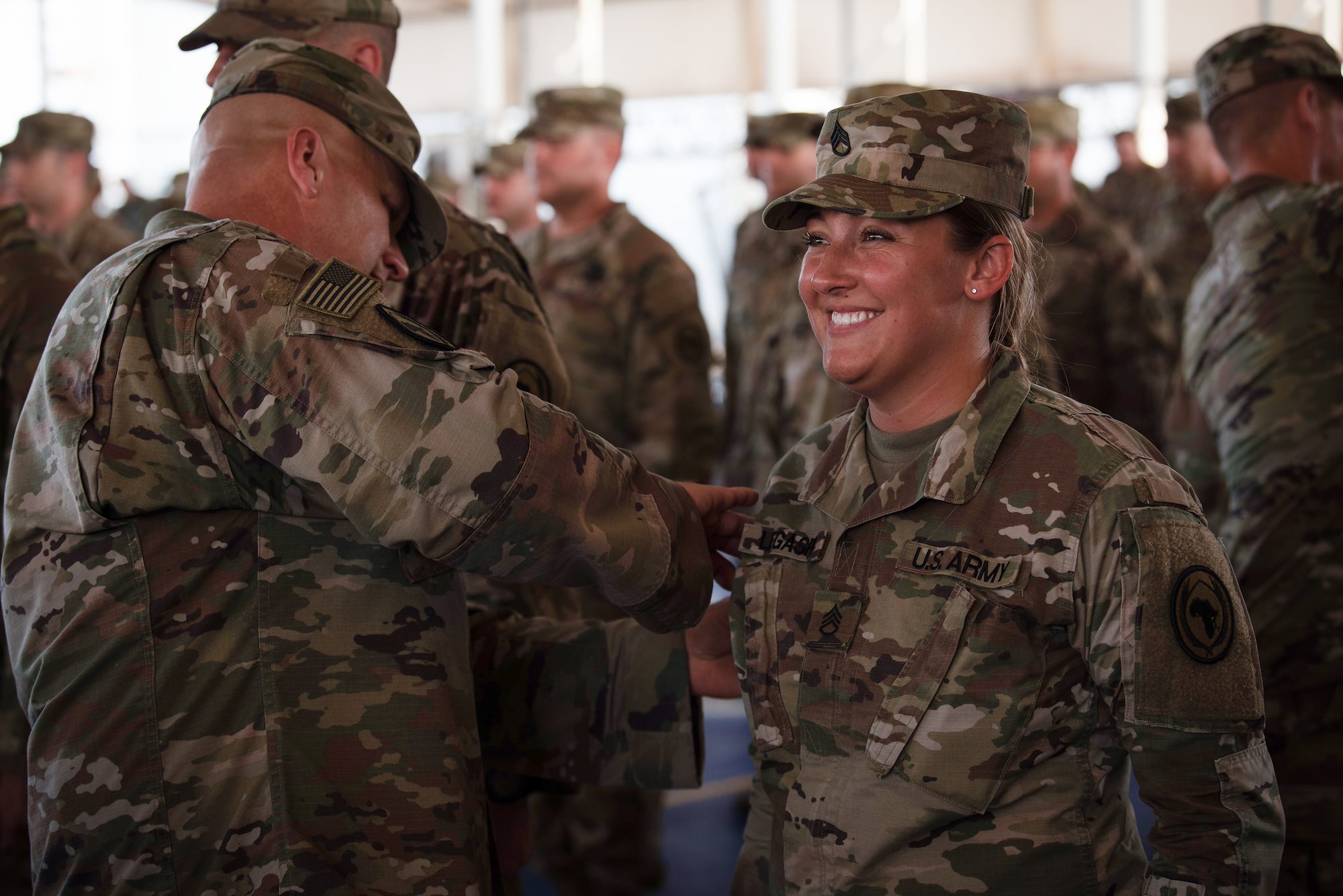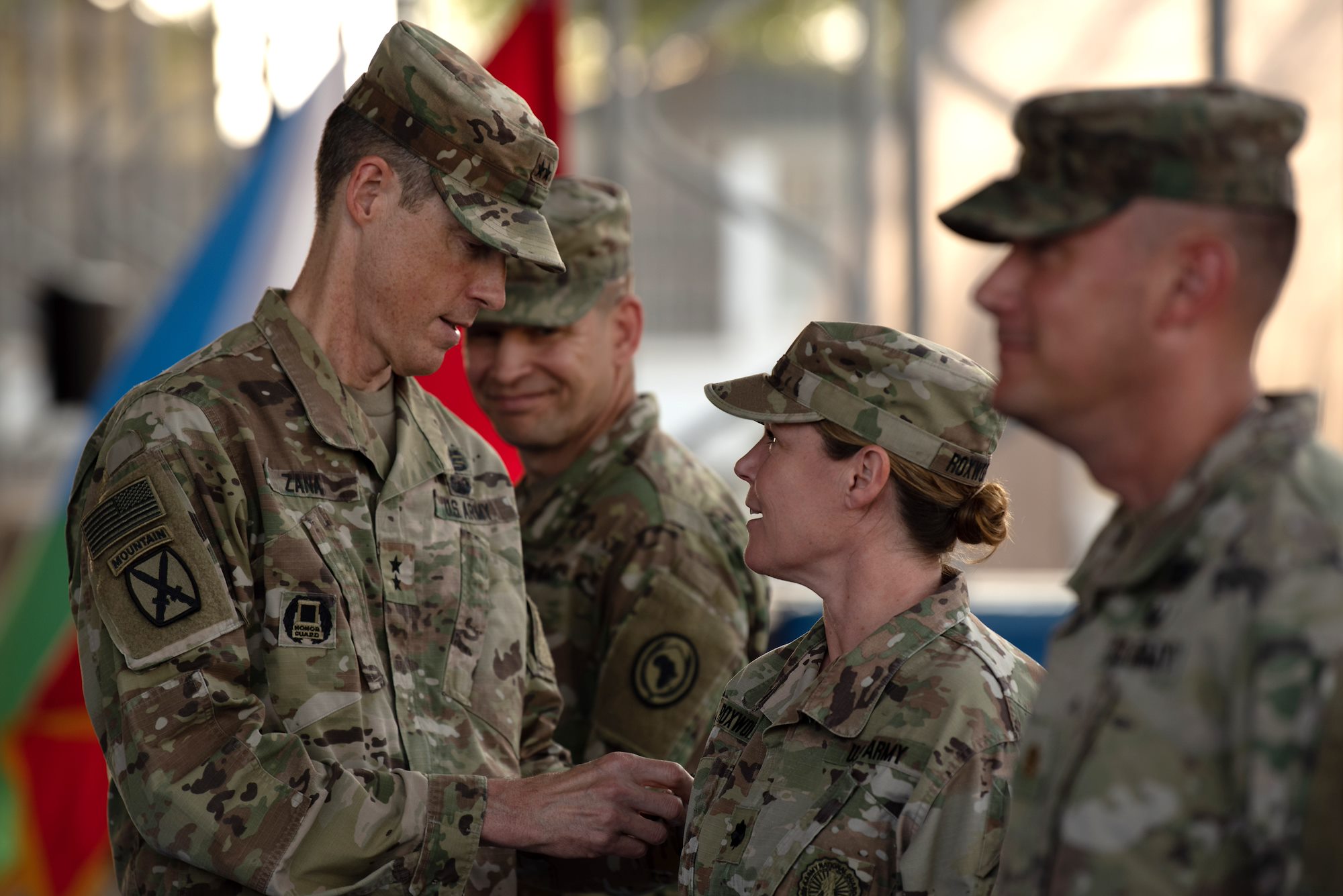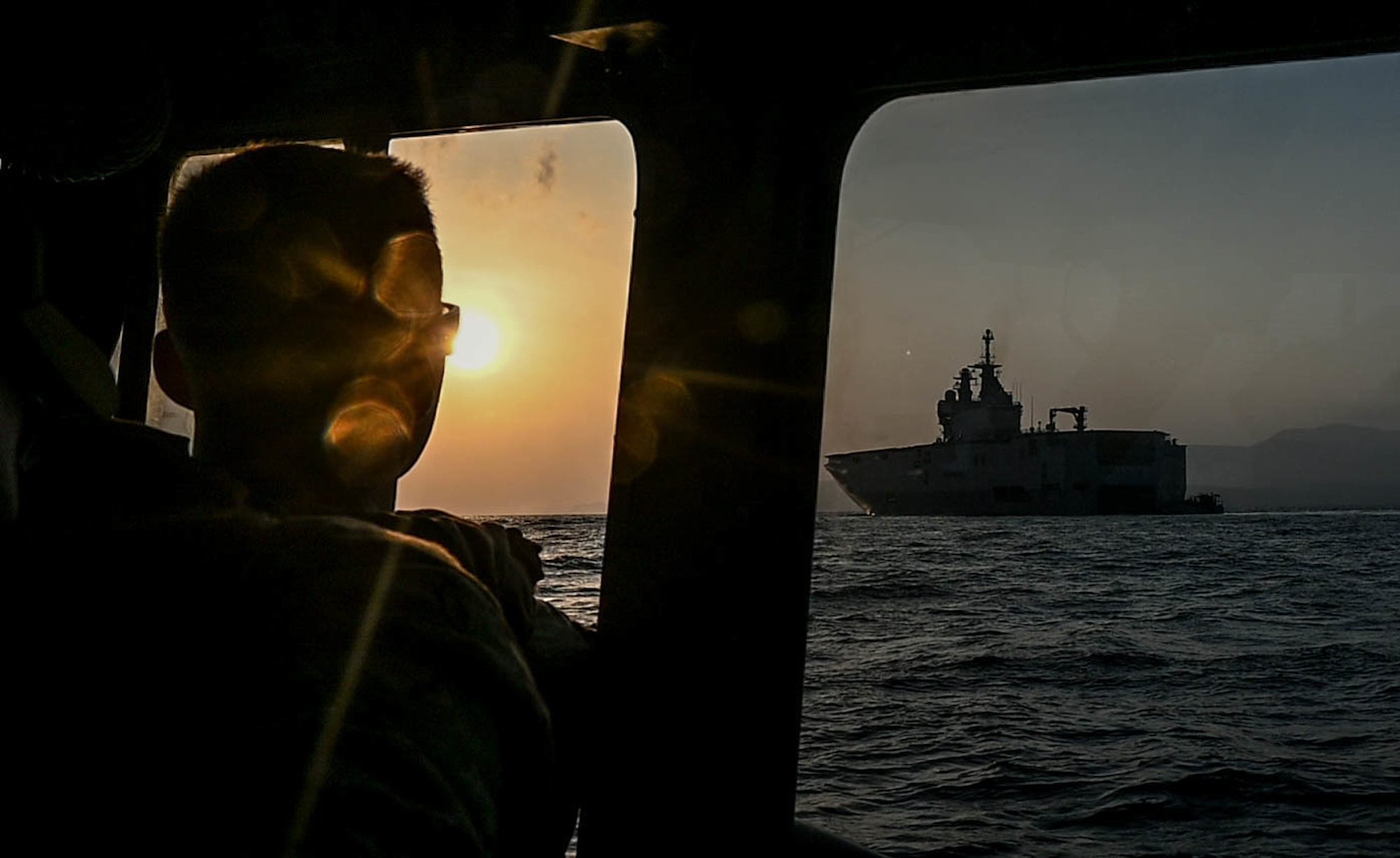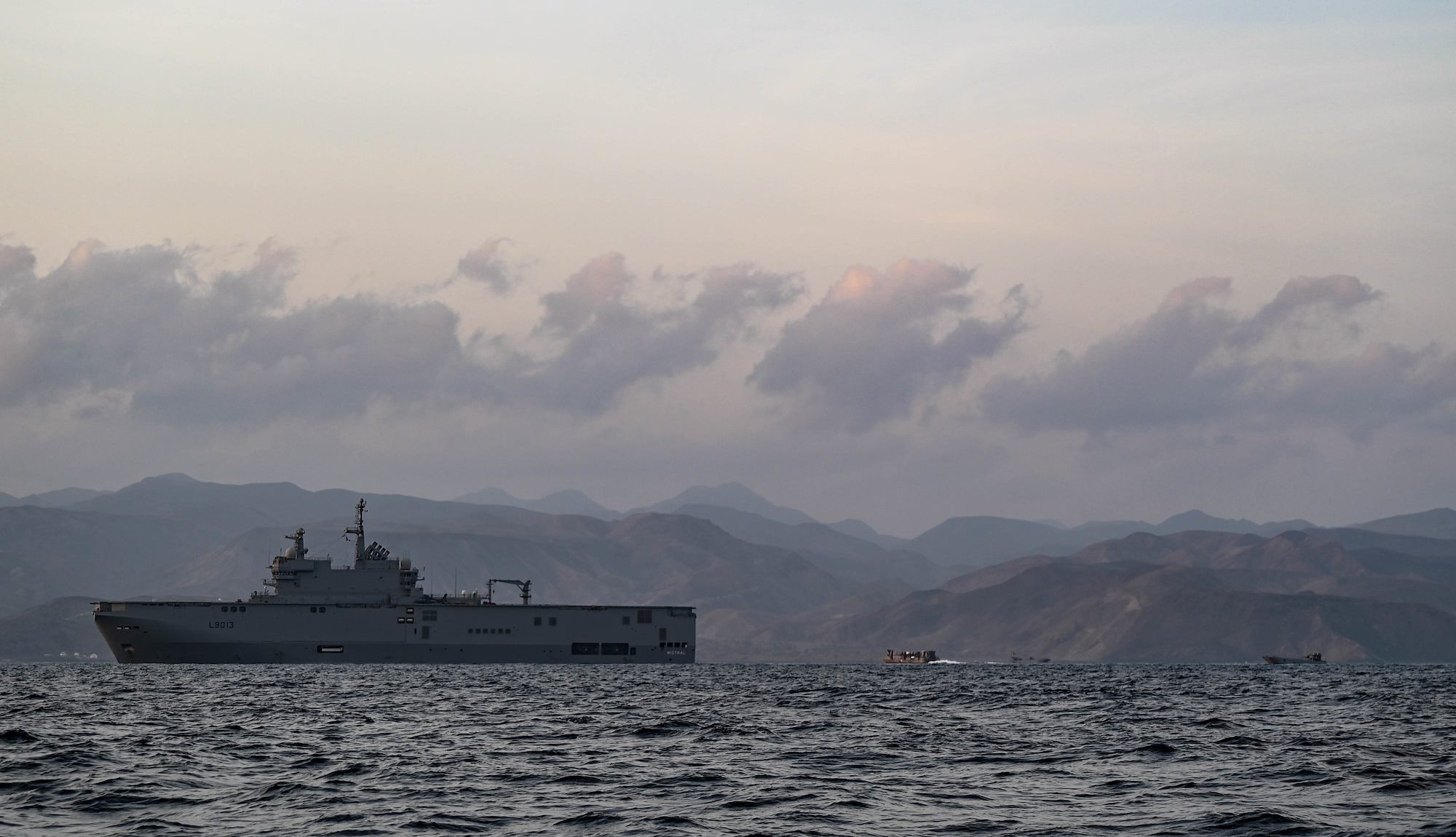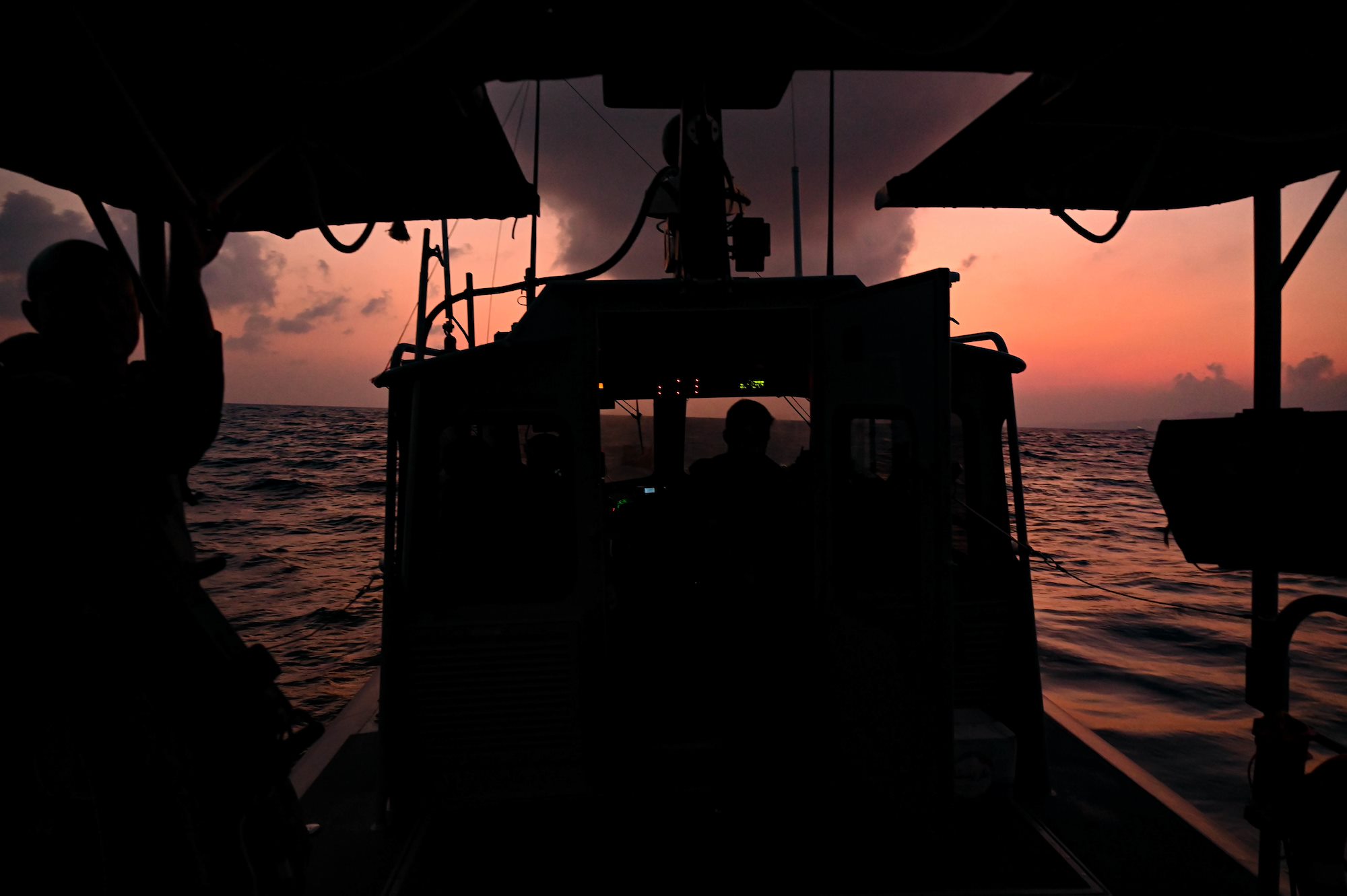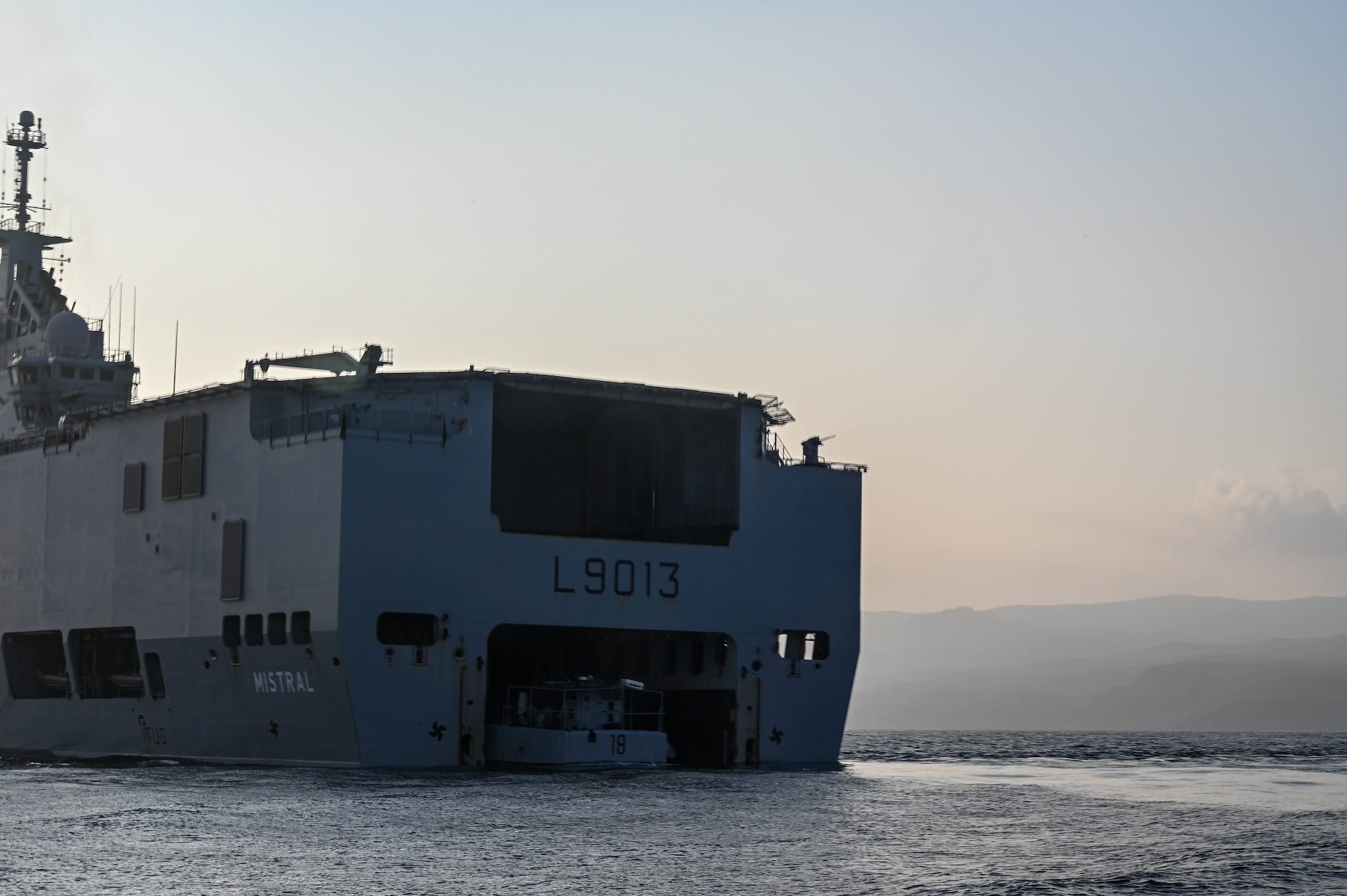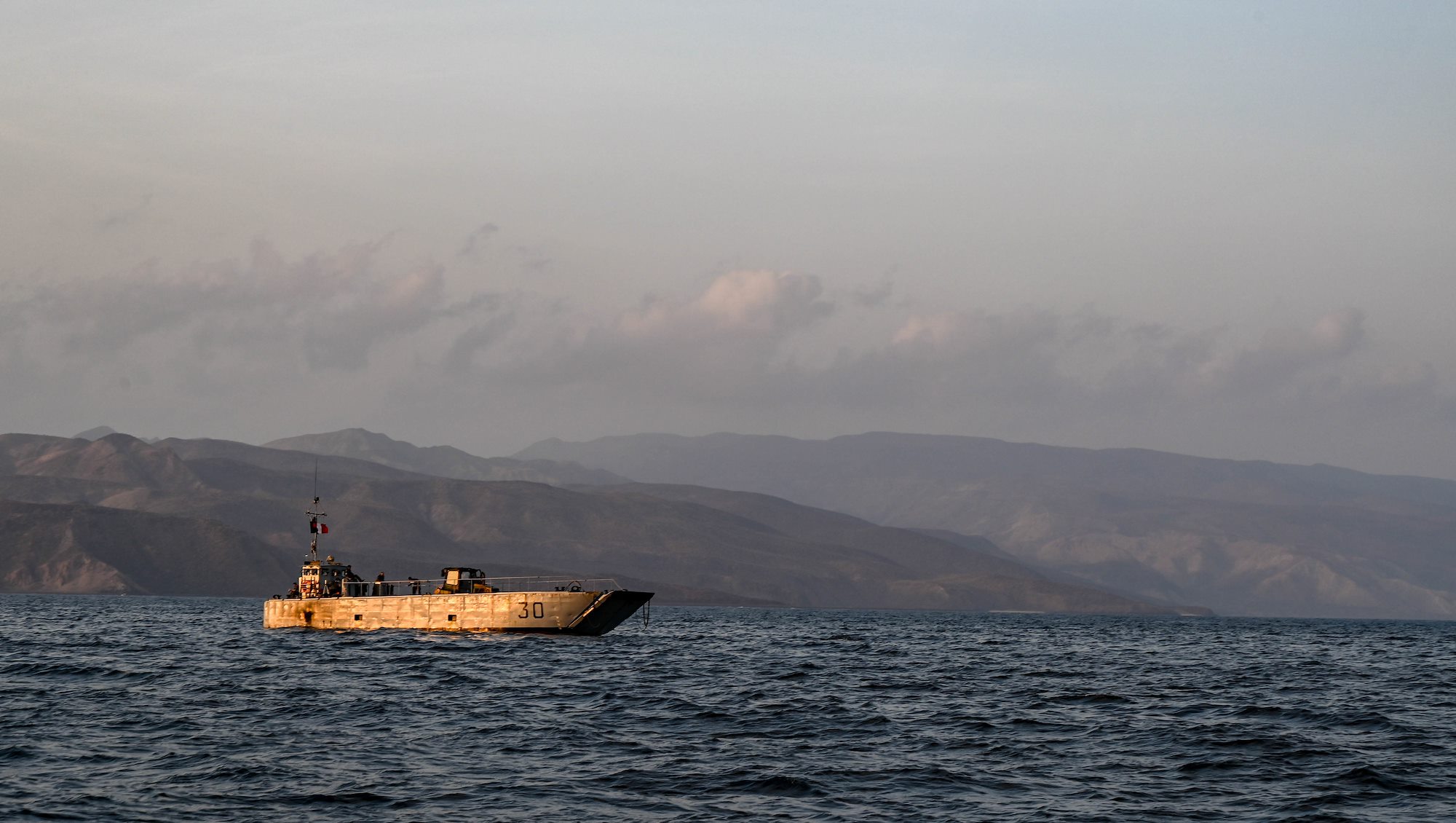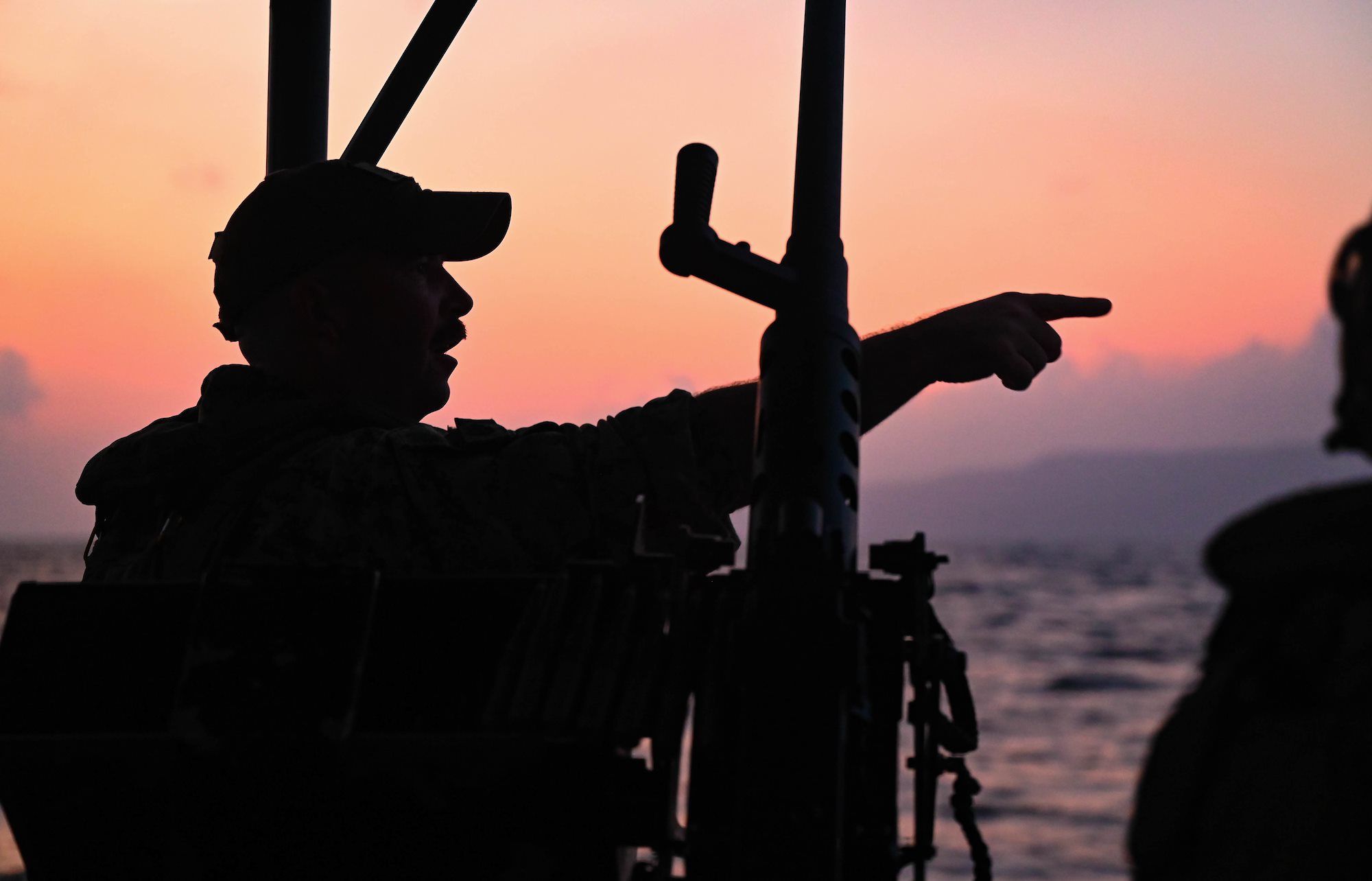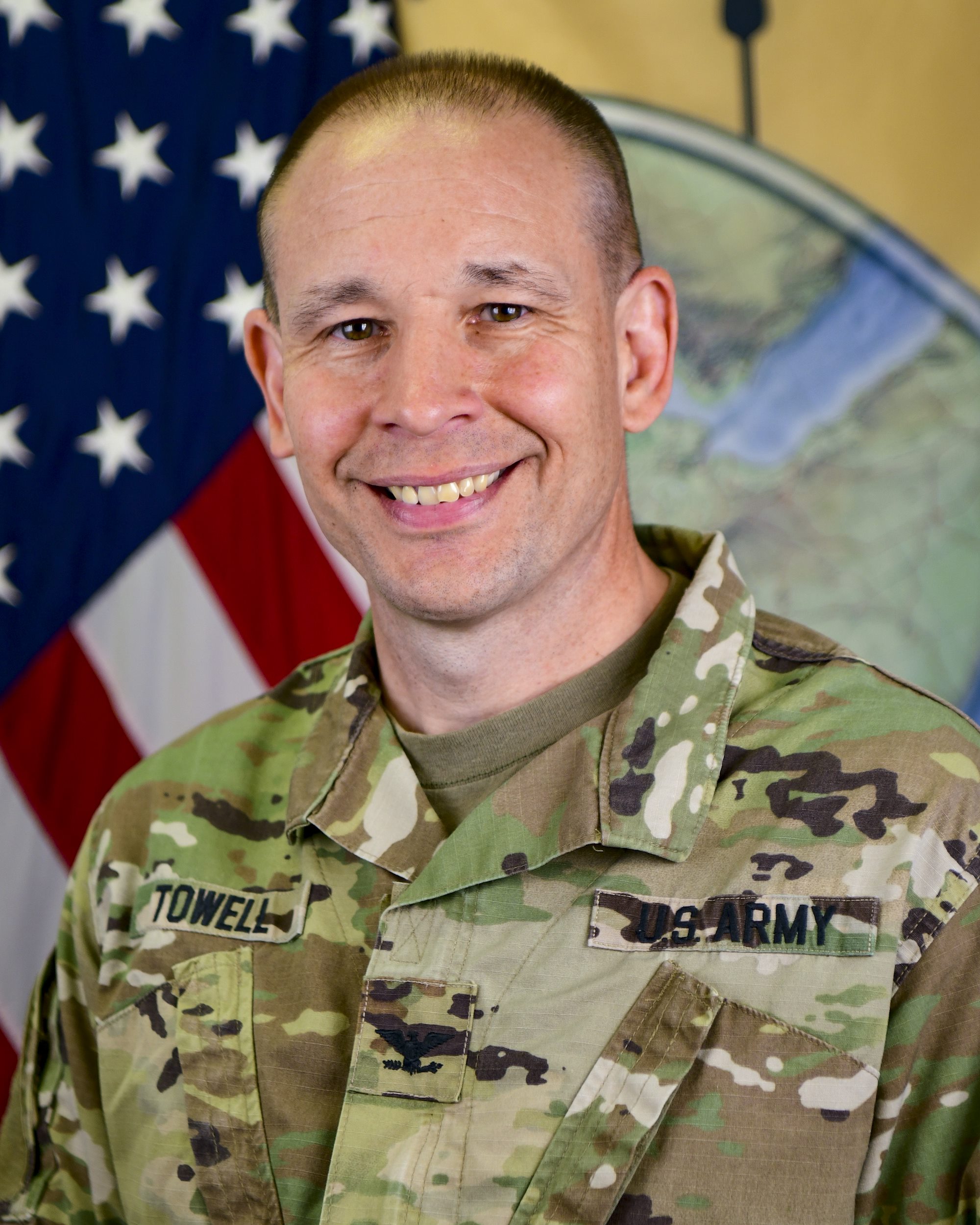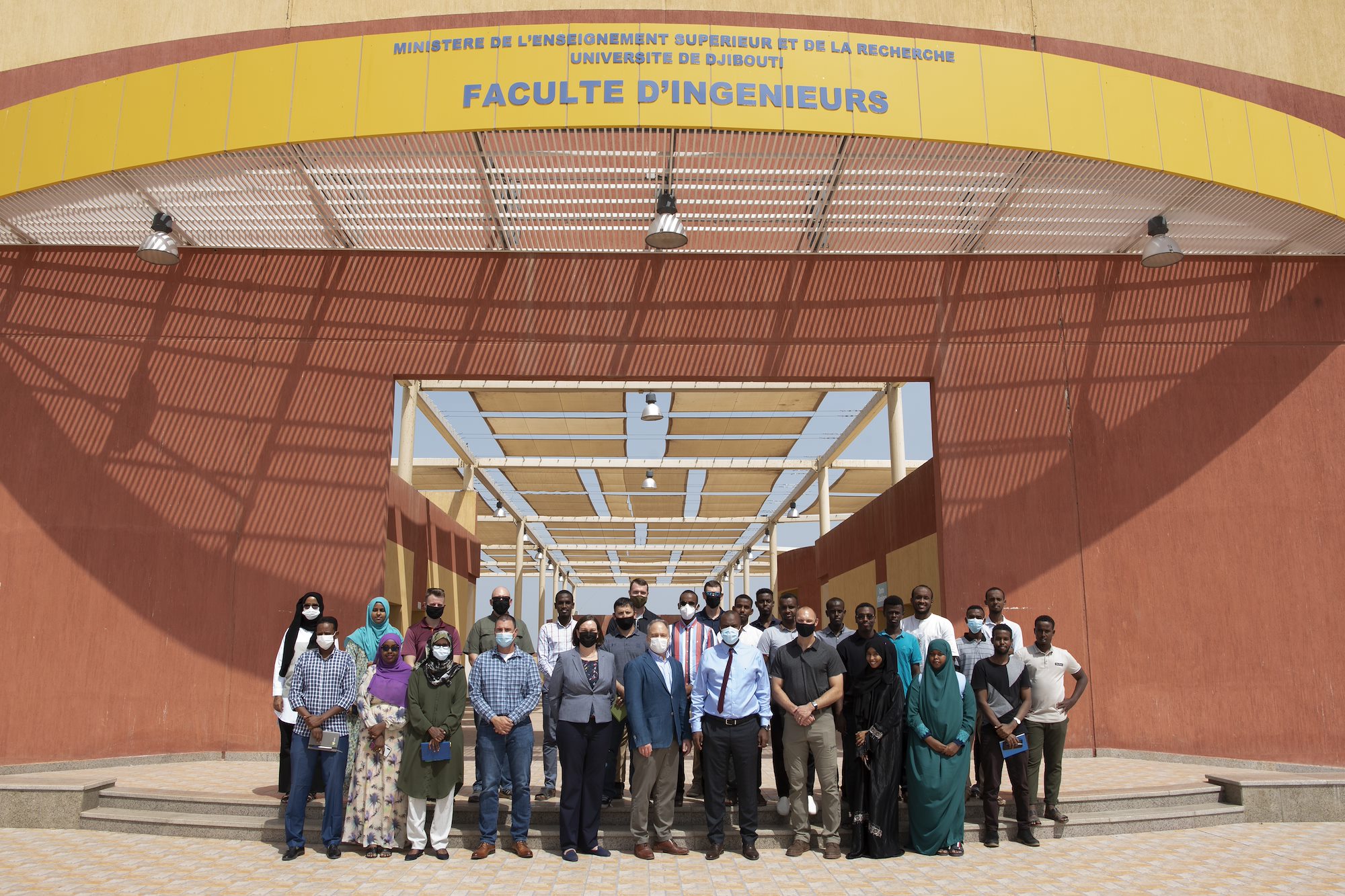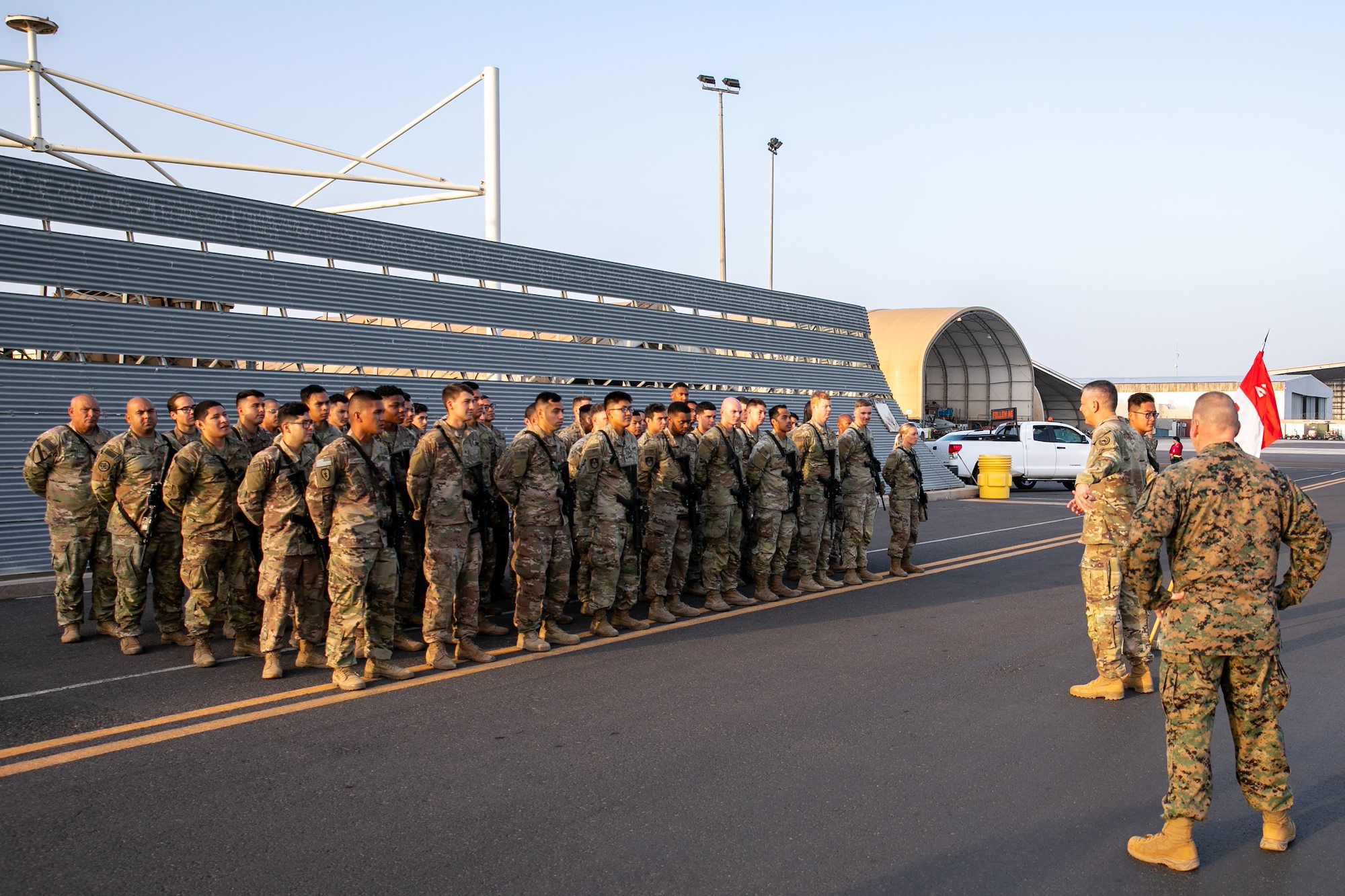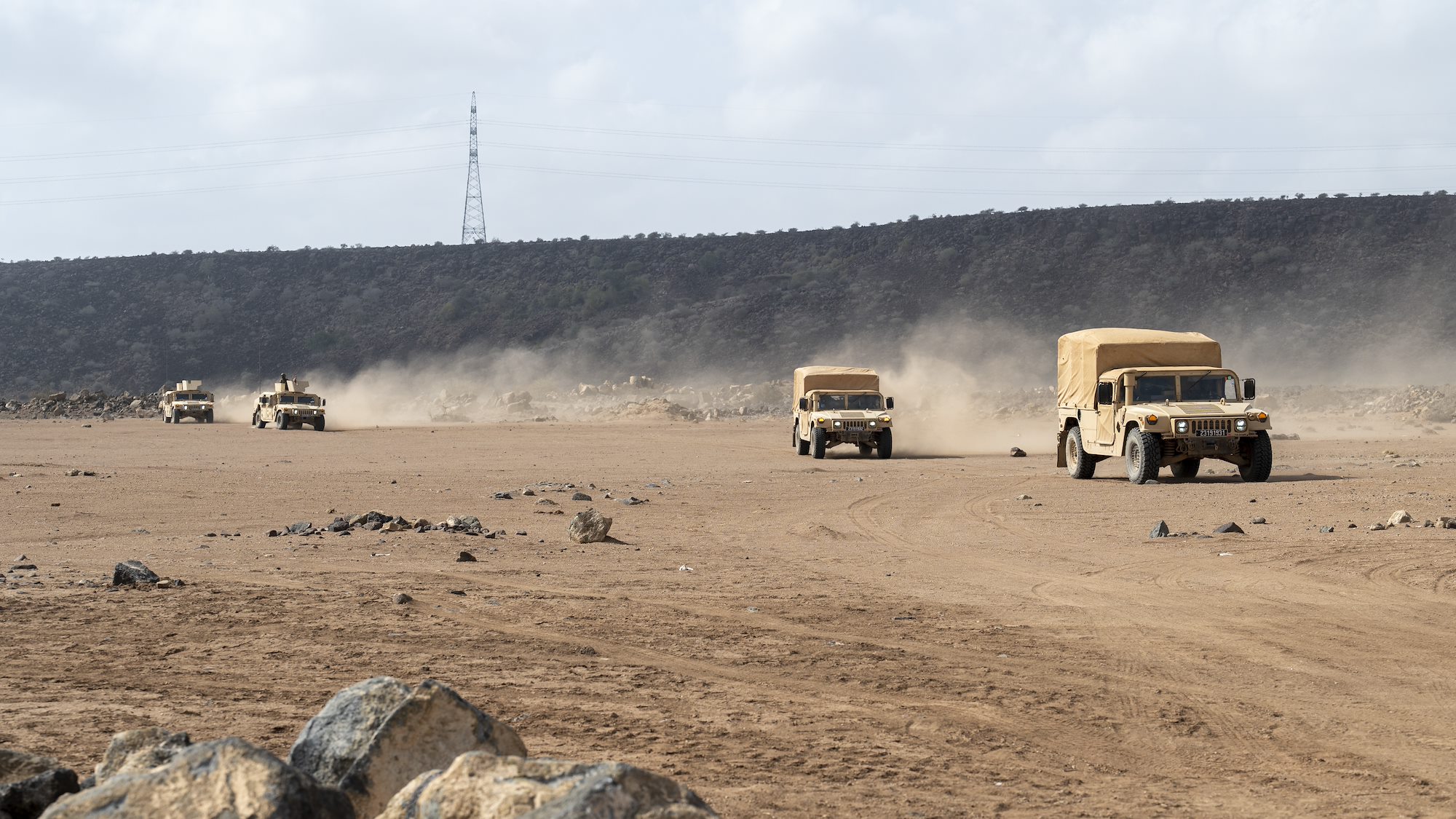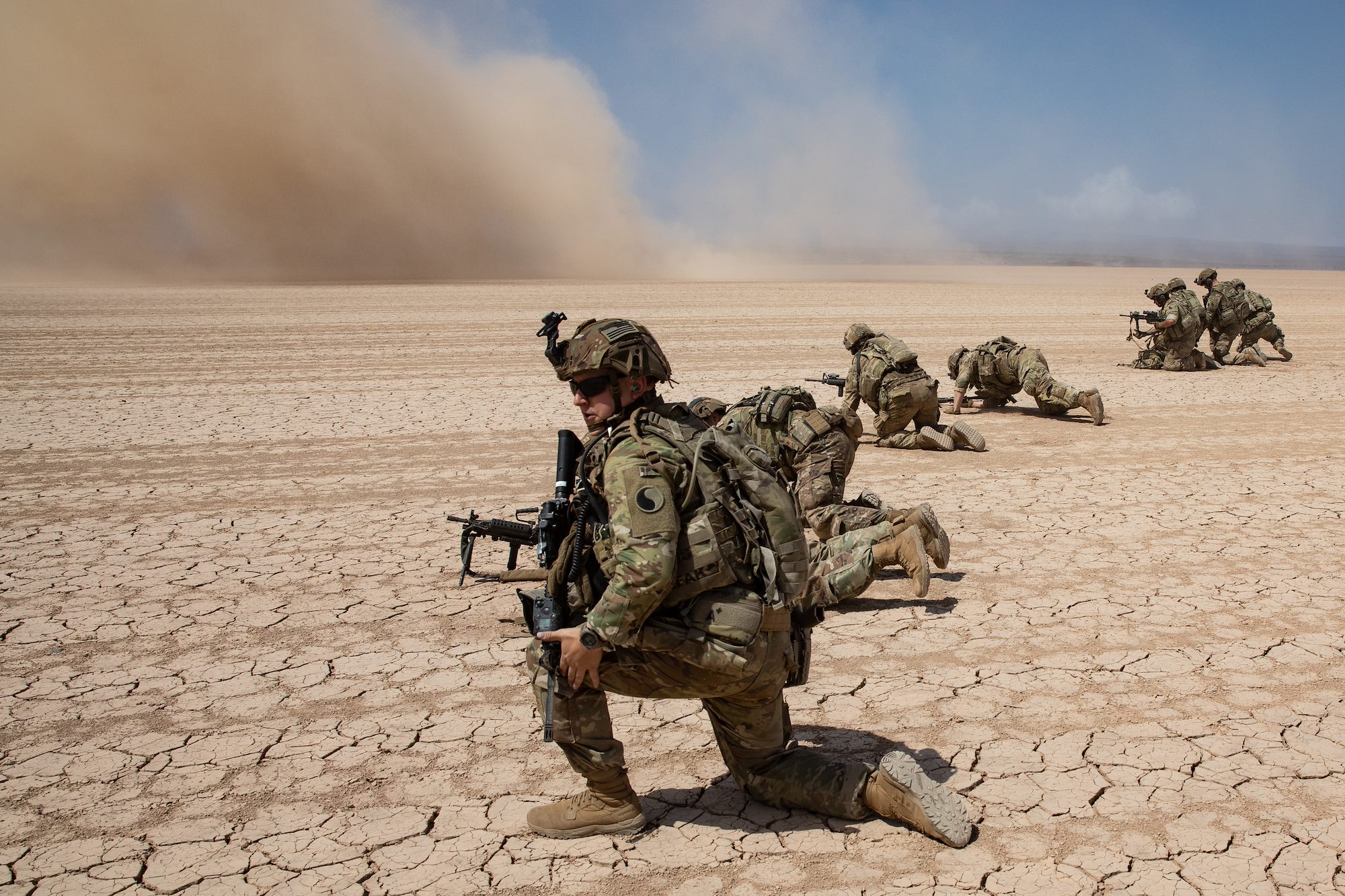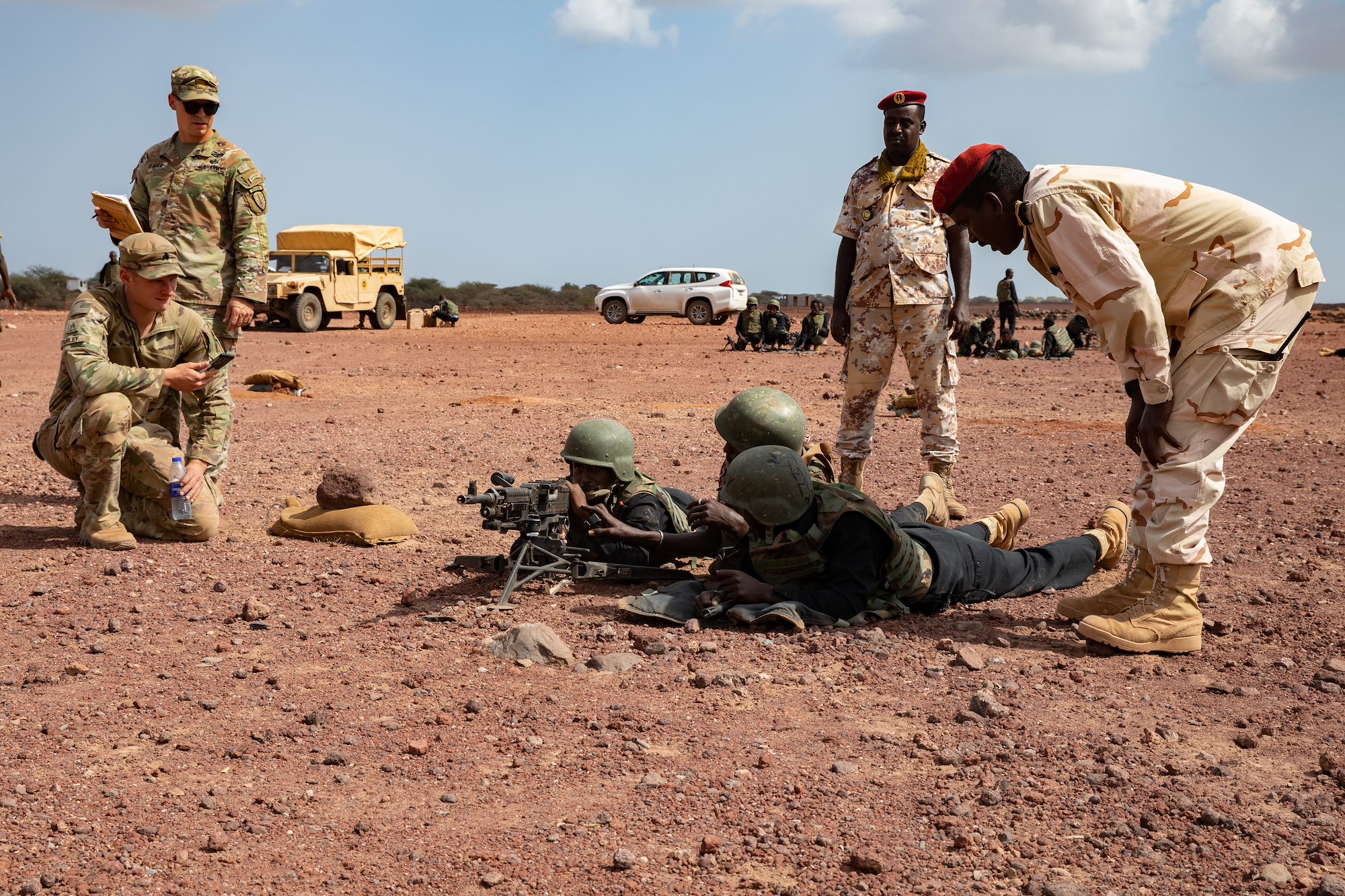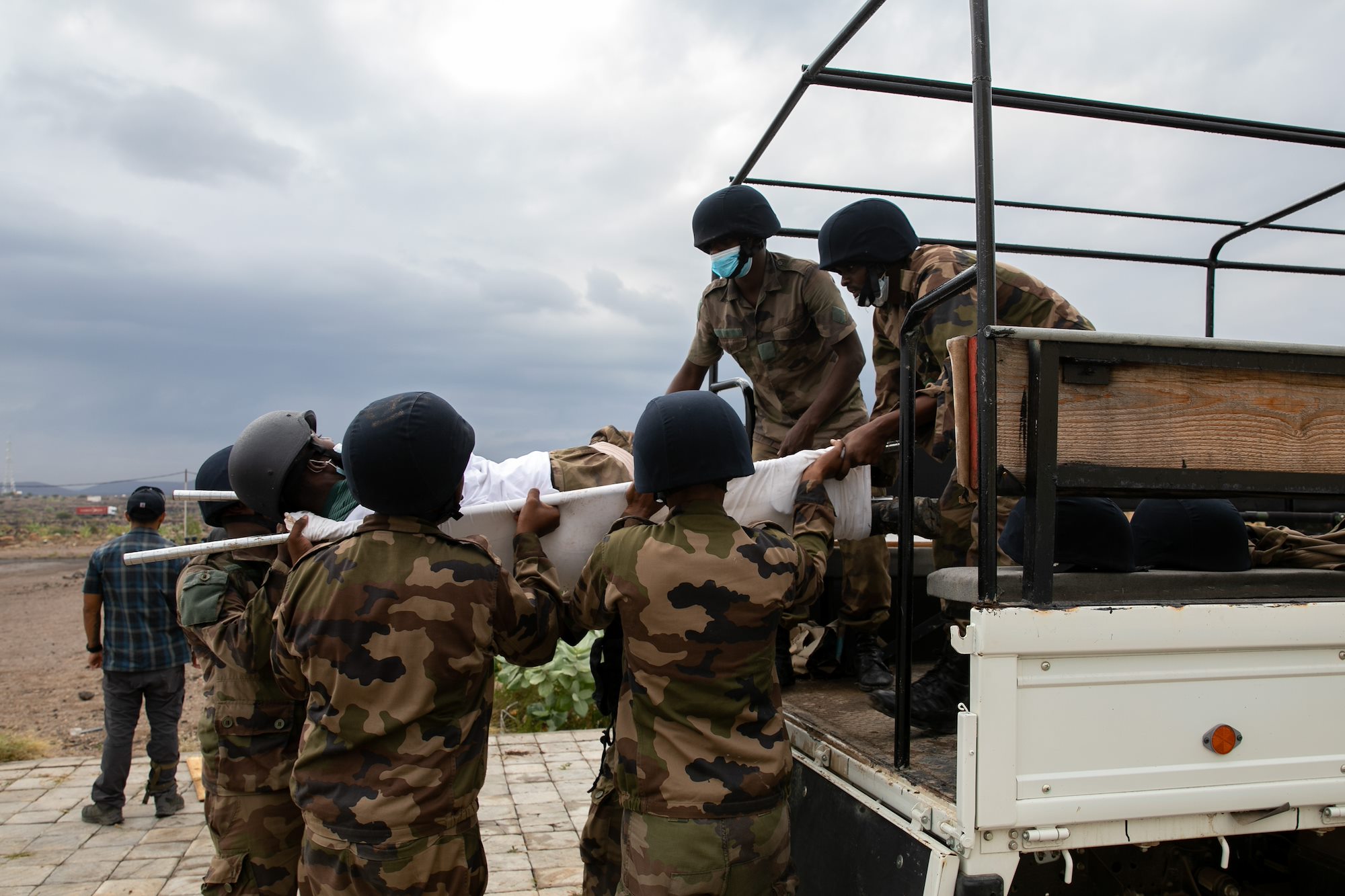https://www.hoa.africom.mil/syndication-feed/atom/images
Combined Joint Task Force - Horn
View Gallery
Combined Joint Task Force - Horn
View Gallery
Combined Joint Task Force - Horn
View Gallery
Combined Joint Task Force - Horn
View Gallery
Combined Joint Task Force - Horn
View Gallery
Combined Joint Task Force - Horn
View Gallery
Combined Joint Task Force - Horn
View Gallery
Combined Joint Task Force - Horn
View Gallery
Col Towell Official Photo
View Gallery
Combined Joint Task Force - Horn
View Gallery
Combined Joint Task Force - Horn
View Gallery
Combined Joint Task Force - Horn
View Gallery
2CR greeted by Gen. Townsend
View Gallery
2CR greeted by Gen. Townsend
View Gallery
2CR greeted by Gen. Townsend
View Gallery
2CR greeted by Gen. Townsend
View Gallery
2CR greeted by Gen. Townsend
View Gallery
Marines, Soldiers conduct C2 Exercise
View Gallery
Marines, Soldiers conduct C2 Exercise
View Gallery
Marines, Soldiers conduct C2 Exercise
View Gallery
Marines, Soldiers conduct C2 Exercise
View Gallery
Marines, Soldiers conduct C2 Exercise
View Gallery
Marines, Red Dragons conduct flight familiarization training
View Gallery
Marines, Red Dragons conduct flight familiarization training
View Gallery
Marines, Red Dragons conduct flight familiarization training
View Gallery
Marines, Red Dragons conduct flight familiarization training
View Gallery
Marines, Red Dragons conduct flight familiarization training
View Gallery
Combined Joint Task Force - Horn
View Gallery
Combined Joint Task Force - Horn
View Gallery
Combined Joint Task Force - Horn
View Gallery
Combined Joint Task Force - Horn
View Gallery
Combined Joint Task Force - Horn
View Gallery
Combined Joint Task Force - Horn
View Gallery
Combined Joint Task Force - Horn
View Gallery
Combined Joint Task Force - Horn
View Gallery
Combined Joint Task Force - Horn
View Gallery
Combined Joint Task Force - Horn
View Gallery
Spc. Gauret Stearns
View Gallery
Spc. Gauret Stearns
View Gallery
Spc. Gauret Stearns
View Gallery
×
Combined Joint Task Force - Horn
Members of the 404th Maneuver Enhancement Brigade receive their combat patch, a military milestone earned while serving in hostile conditions, March 17, 2022. The 404th MEB Soldiers earned their patches while deployed to Combined Joint Task Force - Horn of Africa, located at Camp Lemonnier, Djibouti, the only permanent military base on the African continent. (U.S. Air Force photo by Master Sgt. Cody H. Ramirez)
Photo by: Master Sgt. Cody Ramirez, Camp Lemonnier, Djibouti
Combined Joint Task Force - Horn
Maj. Gen. William Zana, commanding general of Combined Joint Task Force - Horn of Africa (CJTF-HOA), places newly earned combat patches, a military milestone earned while serving in hostile conditions, on members of the 404th Maneuver Enhancement Brigade, March 17, 2022. The 404th MEB Soldiers earned their patches while deployed to CJTF-HOA, located at Camp Lemonnier, Djibouti, the only permanent military base on the African continent. (U.S. Air Force photo by Master Sgt. Cody H. Ramirez)
Photo by: Master Sgt. Cody Ramirez, Camp Lemonnier, Djibouti
Combined Joint Task Force - Horn
U.S. Navy Reserve members with the Maritime Expeditionary Security Squadron 10 (MSRON 10), Joint Base Charleston, South Carolina, watch as members of the French Armed Forces begin the amphibious assault portion of French-led Joint Exercise WAKRI 22, Port Djibouti, Djibouti, March 13, 2021. French-U.S. partnership during the exercise demonstrates Allied interoperability capabilities in austere and complex locations. (U.S. Air Force photo by Staff Sgt. Alysia Blake)
Photo by: Staff Sgt. Alysia Blake, Camp Lemonnier, Djibouti
Combined Joint Task Force - Horn
Members of the French Armed Forces head to shore during the amphibious assault portion of French-led Joint Exercise WAKRI 22, Port of Djibouti, Djibouti, March 13, 2022. French-U.S. partnership during the exercise demonstrates Allied interoperability capabilities in austere and complex locations. (U.S. Air Force photo by Staff Sgt. Alysia Blake)
Photo by: Staff Sgt. Alysia Blake, Camp Lemonnier, Djibouti
Combined Joint Task Force - Horn
U.S. Navy Reserve members with the Maritime Expeditionary Security Squadron 10 (MSRON 10), Joint Base Charleston, South Carolina, prepare for the amphibious assault portion of French-led Joint Exercise WAKRI 22, Port Djibouti, Djibouti, March 13, 2021. French-U.S. partnership during the exercise demonstrates Allied interoperability capabilities in austere and complex locations. (U.S. Air Force photo by Staff Sgt. Alysia Blake)
Photo by: Staff Sgt. Alysia Blake, Camp Lemonnier, Djibouti
Combined Joint Task Force - Horn
Members of the French Navy head to shore during the amphibious assault portion of French-led Joint Exercise WAKRI 22, Port of Djibouti, Djibouti, March 13, 2022. The WAKRI Exercise showcases the ability of U.S. forces to operate in conjunction with French forces, improving overall communication to assist in future missions. (U.S. Air Force photo by Staff Sgt. Alysia Blake)
Photo by: Staff Sgt. Alysia Blake, Camp Lemonnier, Djibouti
Combined Joint Task Force - Horn
Members of the French Armed Forces head to shore during the amphibious assault portion of French-led Joint Exercise WAKRI 22, Port of Djibouti, Djibouti, March 13, 2022. French-U.S. partnership during the exercise demonstrates Allied interoperability capabilities in austere and complex locations. (U.S. Air Force photo by Staff Sgt. Alysia Blake)
Photo by: Staff Sgt. Alysia Blake, Camp Lemonnier, Djibouti
Combined Joint Task Force - Horn
U.S. Navy Reserve members with the Maritime Expeditionary Security Squadron 10 (MSRON 10), Joint Base Charleston, South Carolina, watch as members of the French Armed Forces begin the amphibious assault portion of French-led Joint Exercise WAKRI 22, Port Djibouti, Djibouti, March 13, 2021. The participation of U.S. forces in the French WAKRI exercise demonstrates our interoperability capabilities in austere and complex locations. (U.S. Air Force photo by Staff Sgt. Alysia Blake)
Photo by: Staff Sgt. Alysia Blake, Camp Lemonnier, Djibouti
Col Towell Official Photo
Photo by: CJTF-HOA Public Affairs
Combined Joint Task Force - Horn
Members of Combined Joint Task Force-Horn of Africa, 712th Engineer Support Company and Camp Lemonnier Public Works Department meet with the faculty and students of engineering at the University of Djibouti, Feb. 9, 2022. The visit was part of a greater whole-of-government approach to building a standing relationship between the US Embassy-Djibouti, Camp Lemonnier, and the university. (U.S. Air Force photo by Master Sgt. Cody H. Ramirez)
Photo by: Master Sgt. Cody Ramirez, Djibouti City, Djibouti
Combined Joint Task Force - Horn
An engineering student explains his goals in pursuing an engineering degree to military engineers from the Combined Joint Task Force-Horn of Africa, 712th Engineer Support Company and Camp Lemonnier Public Works Department at the University of Djibouti, February 9, 2022. The visit was part of a greater whole-of-government approach to building a standing relationship between the US Embassy-Djibouti, Camp Lemonnier, and the university. (U.S. Air Force photo by Master Sgt. Cody H. Ramirez)
Photo by: Master Sgt. Cody Ramirez, Djibouti City, Djibouti
Combined Joint Task Force - Horn
U.S. Navy Lt. Jg. Glen Fotland discusses his professional experiences as a military engineer at the University of Djibouti, Feb. 9, 2022. The visit was part of a greater whole-of-government approach to building a standing relationship between the US Embassy-Djibouti, Camp Lemonnier, and the university. (U.S. Air Force photo by Master Sgt. Cody H. Ramirez)
Photo by: Master Sgt. Cody Ramirez, Djibouti City, Djibouti
2CR greeted by Gen. Townsend
U.S. Army Gen. Stephen Townsend, U.S. Africa Command (AFRICOM) commander, and U.S. Marine Corps Sgt. Maj. Richard Thresher, U.S. AFRICOM command senior enlisted leader, meet soldiers assigned to the 2nd Cavalry Regiment (2CR) at Camp Lemonnier, Djibouti, Feb. 17, 2022. Townsend and Thresher greeted the Soldiers as the leaders concluded their multi-country trip to East Africa. The 2CR traveled through Djibouti after finishing a rotation as the security forces at Camp Simba, Kenya. (U.S. Army National Guard photo by Spc. Gauret Stearns)
Photo by: Spc. Gauret Stearns, Djibouti
2CR greeted by Gen. Townsend
U.S. Army Gen. Stephen Townsend, U.S. Africa Command (AFRICOM) commander, greets soldiers assigned to the 2nd Cavalry Regiment (2CR) at Camp Lemonnier, Djibouti, Feb. 17, 2022. Townsend greeted the Soldiers as he concluded his multi-country trip to East Africa. The 2CR traveled through Djibouti after finishing a rotation as the security forces at Camp Simba, Kenya. (U.S. Army National Guard photo by Spc. Gauret Stearns)
Photo by: Spc. Gauret Stearns, Djibouti
2CR greeted by Gen. Townsend
U.S. Army Gen. Stephen Townsend, U.S. Africa Command (AFRICOM) commander, and U.S. Marine Corps Sgt. Maj. Richard Thresher, U.S. AFRICOM command senior enlisted leader, meet soldiers assigned to the 2nd Cavalry Regiment (2CR) at Camp Lemonnier, Djibouti, Feb. 17, 2022. Townsend and Thresher greeted the Soldiers as the leaders concluded their multi-country trip to East Africa. The 2CR traveled through Djibouti after finishing a rotation as the security forces at Camp Simba, Kenya. (U.S. Army National Guard photo by Spc. Gauret Stearns)
Photo by: Spc. Gauret Stearns, Djibouti
2CR greeted by Gen. Townsend
U.S. Marine Corps Sgt. Maj. Richard Thresher, U.S. Africa Command (AFRICOM) command senior enlisted leader, talks with soldiers assigned to the 2nd Cavalry Regiment (2CR) at Camp Lemonnier, Djibouti, Feb. 17, 2022. Thresher and U.S. Army Gen. Stephen Townsend, U.S. AFRICOM commander, greeted the Soldiers as the leaders concluded their multi-country trip to East Africa. The 2CR traveled through Djibouti after finishing a rotation as the security forces at Camp Simba, Kenya. (U.S. Army National Guard photo by Spc. Gauret Stearns)
Photo by: Spc. Gauret Stearns, Djibouti
2CR greeted by Gen. Townsend
U.S. Marine Corps Sgt. Maj. Richard Thresher, U.S. Africa Command (AFRICOM) command senior enlisted leader, talks with soldiers assigned to the 2nd Cavalry Regiment (2CR) at Camp Lemonnier, Djibouti, Feb. 17, 2022. Thresher and U.S. Army Gen. Stephen Townsend, U.S. Africa Command commander, greeted the Soldiers as the leaders concluded their multi-country trip to East Africa. The 2CR traveled through Djibouti after finishing a rotation as the security forces at Camp Simba, Kenya. (U.S. Army National Guard photo by Spc. Gauret Stearns)
Photo by: Spc. Gauret Stearns, Djibouti
Marines, Soldiers conduct C2 Exercise
The Armed Forces of Djibouti (FAD) Bataillon d'intervention rapide (BIR) arrives at Quaid Range, Djibouti, Feb. 9, 2022. The BIR is a FAD advanced infantry battalion that trains and serves as a quick reaction force to accomplish specified tasks directed by its higher command in the Djiboutian army. (U.S. Air Force photo by Senior Airman Blake Wiles)
Photo by: Senior Airman Blake Wiles, Camp Lemonnier, Djibouti
Marines, Soldiers conduct C2 Exercise
U.S. Marine Corps Marines with Marine Air Control Group Detachment East Africa Air Combat Element and U.S. Army Soldiers with 1-107th Air Operations Battalion conduct a joint command and control exercise at Quaid Range, Djibouti, Feb. 8, 2022. The multi-day exercise demonstrated the MACG’s ability to rapidly conduct command and control operations in a forward deployed location. (U.S. Air Force photo by Senior Airman Blake Wiles)
Photo by: Senior Airman Blake Wiles, Camp Lemonnier, Djibouti
Marines, Soldiers conduct C2 Exercise
U.S. Marines with the Marine Air Control Group Detachment East Africa Air Combat Element, fill sandbags during a joint command and control exercise at Quaid Range, Djibouti, Feb. 8, 2022. The multi-day exercise demonstrated the MACG’s ability to rapidly conduct command and control operations in a forward deployed location. (U.S. Air Force photo by Senior Airman Blake Wiles)
Photo by: Senior Airman Blake Wiles, Camp Lemonnier, Djibouti
Marines, Soldiers conduct C2 Exercise
U.S. service members work with Djiboutian Bataillon d'intervention rapide (BIR) to construct a high frequency signal antenna during a joint command and control exercise at Quaid Range, Djibouti, Feb. 9, 2022. The members of the BIR used this exercise as an opportunity to demonstrate their effectiveness in a field environment and establish standard operating procedures for future use. The multi-day exercise demonstrated the Marine Air Control Group Detachment East Africa Air Combat Element’s ability to rapidly conduct command and control operations in a forward deployed location. (U.S. Air Force photo by Senior Airman Blake Wiles)
Photo by: Senior Airman Blake Wiles, Camp Lemonnier, Djibouti
Marines, Soldiers conduct C2 Exercise
An MV-22B Opsrey tiltrotor aircraft assigned to Marine Medium Tiltrotor Squadron 161 (VMM-161) takes off at Quaid Range, Djibouti, Feb. 9, 2022. The Ospreys support the Combined Joint Task Force - Horn of Africa (CJTF-HOA) by providing personnel recovery and casualty evacuation of U.S. Forces throughout East Africa. (U.S. Air Force photo by Senior Airman Blake Wiles)
Photo by: Senior Airman Blake Wiles, Camp Lemonnier, Djibouti
Marines, Red Dragons conduct flight familiarization training
Virginia Army National Guard Soldiers assigned to the East Africa Response
Force (EARF), Task Force Red Dragon, Combined Joint Task Force-Horn of Africa
(CJTF-HOA), set security positions during an air assault with the U.S. Marine Corps Marine Medium Tiltrotor Squadron-161 (VMM-161) in the Grand Bara Desert, Feb. 8, 2022. The EARF is postured to
respond to a broad range of military operations to provide limited-defense
crisis response in the region, including support for non-combatant evacuation
operations, humanitarian assistance, disaster relief operations, recovery
capabilities of aircraft and personnel, support to U.S. embassies and other
missions as directed. The EARF is augmented by U.S. Marine Corps aviation
assets that transport and insert ground forces wherever they are needed
throughout the region, supporting crisis response through seamless and
immediate force deployment capabilities across vast distances. (U.S. Army
National Guard photo by Staff Sgt. Jeff Clements)
Photo by: Staff Sgt. Jeff Clements, Djibouti
Marines, Red Dragons conduct flight familiarization training
Virginia Army National Guard Soldiers assigned to the East Africa Response
Force (EARF), Task Force Red Dragon, Combined Joint Task Force-Horn of Africa
(CJTF-HOA), set security positions during an air assault with the U.S. Marine Corps Marine Medium Tiltrotor Squadron-161 (VMM-161) in the Grand Bara Desert, Feb. 8, 2022. The EARF is postured to
respond to a broad range of military operations to provide limited-defense
crisis response in the region, including support for non-combatant evacuation
operations, humanitarian assistance, disaster relief operations, recovery
capabilities of aircraft and personnel, support to U.S. embassies and other
missions as directed. The EARF is augmented by U.S. Marine Corps aviation
assets that transport and insert ground forces wherever they are needed
throughout the region, supporting crisis response through seamless and
immediate force deployment capabilities across vast distances. (U.S. Army
National Guard photo by Staff Sgt. Jeff Clements)
Photo by: Staff Sgt. Jeff Clements, Djibouti
Marines, Red Dragons conduct flight familiarization training
Virginia Army National Guard Soldiers assigned to the East Africa Response
Force (EARF), Task Force Red Dragon, Combined Joint Task Force-Horn of Africa
(CJTF-HOA), set security positions during an air assault with the U.S. Marine Corps Marine Medium Tiltrotor Squadron-161 (VMM-161) in the Grand Bara Desert, Feb. 8, 2022. The EARF is postured to
respond to a broad range of military operations to provide limited-defense
crisis response in the region, including support for non-combatant evacuation
operations, humanitarian assistance, disaster relief operations, recovery
capabilities of aircraft and personnel, support to U.S. embassies and other
missions as directed. The EARF is augmented by U.S. Marine Corps aviation
assets that transport and insert ground forces wherever they are needed
throughout the region, supporting crisis response through seamless and
immediate force deployment capabilities across vast distances. (U.S. Army
National Guard photo by Staff Sgt. Jeff Clements)
Photo by: Staff Sgt. Jeff Clements, Djibouti
Marines, Red Dragons conduct flight familiarization training
Virginia Army National Guard Soldiers assigned to the East Africa Response
Force (EARF), Task Force Red Dragon, Combined Joint Task Force-Horn of Africa
(CJTF-HOA), conduct integration training and flight familiarization with U.S.
Marine Corps Marine Medium Tiltrotor Squadron-161 (VMM-161) aboard their MV-22 Ospreys at Camp Lemonnier, Djibouti, Feb. 8, 2022. The EARF is postured to
respond to a broad range of military operations to provide limited-defense
crisis response in the region, including support for non-combatant evacuation
operations, humanitarian assistance, disaster relief operations, recovery
capabilities of aircraft and personnel, support to U.S. embassies and other
missions as directed. The EARF is augmented by U.S. Marine Corps aviation
assets that transport and insert ground forces wherever they are needed
throughout the region, supporting crisis response through seamless and
immediate force deployment capabilities across vast distances. (U.S. Army
National Guard photo by Staff Sgt. Jeff Clements)
Photo by: Staff Sgt. Jeff Clements, Djibouti
Marines, Red Dragons conduct flight familiarization training
Virginia Army National Guard Soldiers assigned to the East Africa Response
Force (EARF), Task Force Red Dragon, Combined Joint Task Force-Horn of Africa
(CJTF-HOA), prepare to board an MV-22 Osprey during an air assault with the U.S. Marine Corps Marine Medium Tiltrotor Squadron-161 (VMM-161) in the Grand Bara Desert, Feb. 8, 2022. The EARF is postured to
respond to a broad range of military operations to provide limited-defense
crisis response in the region, including support for non-combatant evacuation
operations, humanitarian assistance, disaster relief operations, recovery
capabilities of aircraft and personnel, support to U.S. embassies and other
missions as directed. The EARF is augmented by U.S. Marine Corps aviation
assets that transport and insert ground forces wherever they are needed
throughout the region, supporting crisis response through seamless and
immediate force deployment capabilities across vast distances. (U.S. Army
National Guard photo by Staff Sgt. Jeff Clements)
Photo by: Staff Sgt. Jeff Clements, Djibouti
Combined Joint Task Force - Horn
U.S. Soldiers assigned to C Company, Maneuver Company Advisor Team 2130 and Task Force Red Dragon, Combined Joint Task Force-Horn of Africa, support a Machine Gun University competition between Djiboutian Battalion Intervention Rapadie machine gun teams at Ali Oune, Djibouti, Jan. 26, 2022.
The competition consisted of a five-mile road march, timed deliberate emplacement and engagement from a support by fire position and the gun teams engaging targets on a live-fire range for time and accuracy. CJTF-HOA, operating from Camp Lemonnier, Djibouti, regularly trains with and works alongside allied and partner nations, coalition forces and interagency/intergovernmental organizations to achieve a unified effort in East Africa.
(U.S. Army National Guard photo by Staff Sgt. Jeff Clements)
Photo by: Staff Sgt. Jeff Clements, Djibouti
Combined Joint Task Force - Horn
U.S. Soldiers assigned to C Company, Maneuver Company Advisor Team 2130 and Task Force Red Dragon, Combined Joint Task Force-Horn of Africa, support a Machine Gun University competition between Djiboutian Battalion Intervention Rapadie machine gun teams at Ali Oune, Djibouti, Jan. 26, 2022.
The competition consisted of a five-mile road march, timed deliberate emplacement and engagement from a support by fire position and the gun teams engaging targets on a live-fire range for time and accuracy. CJTF-HOA, operating from Camp Lemonnier, Djibouti, regularly trains with and works alongside allied and partner nations, coalition forces and interagency/intergovernmental organizations to achieve a unified effort in East Africa.
(U.S. Army National Guard photo by Staff Sgt. Jeff Clements
Photo by: Staff Sgt. Jeff Clements, Djibouti
Combined Joint Task Force - Horn
U.S. Soldiers assigned to Task Force Red Dragon, Combined Joint Task Force-Horn of Africa, assist with a Machine Gun University competition between Djiboutian Battalion Intervention Rapadie machine gun teams at Ali Oune, Djibouti, Jan. 26, 2022.
The competition consisted of a five-mile road march, timed deliberate emplacement and engagement from a support by fire position and the gun teams engaging targets on a live-fire range for time and accuracy. CJTF-HOA, operating from Camp Lemonnier, Djibouti, regularly trains with and works alongside allied and partner nations, coalition forces and interagency/intergovernmental organizations to achieve a unified effort in East Africa.
(U.S. Army National Guard photo by Staff Sgt. Jeff Clements)
Photo by: Staff Sgt. Jeff Clements, Djibouti
Combined Joint Task Force - Horn
U.S. Soldiers assigned to Task Force Red Dragon, Combined Joint Task Force-Horn of Africa, assist with a Machine Gun University competition between Djiboutian Battalion Intervention Rapadie machine gun teams at Ali Oune, Djibouti, Jan. 26, 2022.
The competition consisted of a five-mile road march, timed deliberate emplacement and engagement from a support by fire position and the gun teams engaging targets on a live-fire range for time and accuracy. CJTF-HOA, operating from Camp Lemonnier, Djibouti, regularly trains with and works alongside allied and partner nations, coalition forces and interagency/intergovernmental organizations to achieve a unified effort in East Africa.
(U.S. Army National Guard photo by Staff Sgt. Jeff Clements)
Photo by: Staff Sgt. Jeff Clements, Djibouti
Combined Joint Task Force - Horn
U.S. Soldiers assigned to C Company, Maneuver Company Advisor Team 2130 and Task Force Red Dragon, Combined Joint Task Force-Horn of Africa, support a Machine Gun University competition between Djiboutian Battalion Intervention Rapadie machine gun teams at Ali Oune, Djibouti, Jan. 26, 2022.
The competition consisted of a five-mile road march, timed deliberate emplacement and engagement from a support by fire position and the gun teams engaging targets on a live-fire range for time and accuracy. CJTF-HOA, operating from Camp Lemonnier, Djibouti, regularly trains with and works alongside allied and partner nations, coalition forces and interagency/intergovernmental organizations to achieve a unified effort in East Africa.
(U.S. Army National Guard photo by Staff Sgt. Jeff Clements
Photo by: Staff Sgt. Jeff Clements, Djibouti
Combined Joint Task Force - Horn
U.S. Soldiers assigned to C Company, Maneuver Company Advisor Team 2130 and Task Force Red Dragon, Combined Joint Task Force-Horn of Africa, support a Machine Gun University competition between Djiboutian Battalion Intervention Rapadie machine gun teams at Ali Oune, Djibouti, Jan. 26, 2022.
The competition consisted of a five-mile road march, timed deliberate emplacement and engagement from a support by fire position and the gun teams engaging targets on a live-fire range for time and accuracy. CJTF-HOA, operating from Camp Lemonnier, Djibouti, regularly trains with and works alongside allied and partner nations, coalition forces and interagency/intergovernmental organizations to achieve a unified effort in East Africa.
(U.S. Army National Guard photo by Staff Sgt. Jeff Clements)
Photo by: Staff Sgt. Jeff Clements, Djibouti
Combined Joint Task Force - Horn
U.S. Soldiers assigned to C Company, Maneuver Company Advisor Team 2130 and Task Force Red Dragon, Combined Joint Task Force-Horn of Africa, complete a five-mile road march in support of a Machine Gun University competition between Djiboutian Battalion Intervention Rapadie machine gun teams at Ali Oune, Djibouti, Jan. 26, 2022.
The competition consisted of a five-mile road march, timed deliberate emplacement and engagement from a support by fire position and the gun teams engaging targets on a live-fire range for time and accuracy. CJTF-HOA, operating from Camp Lemonnier, Djibouti, regularly trains with and works alongside allied and partner nations, coalition forces and interagency/intergovernmental organizations to achieve a unified effort in East Africa.
(U.S. Army National Guard photo by Staff Sgt. Jeff Clements)
Photo by: Staff Sgt. Jeff Clements, Djibouti
Combined Joint Task Force - Horn
U.S. Soldiers assigned to C Company, Maneuver Company Advisor Team 2130 and Task Force Red Dragon, Combined Joint Task Force-Horn of Africa, support a Machine Gun University competition between Djiboutian Battalion Intervention Rapadie machine gun teams at Ali Oune, Djibouti, Jan. 26, 2022.
The competition consisted of a five-mile road march, timed deliberate emplacement and engagement from a support by fire position and the gun teams engaging targets on a live-fire range for time and accuracy. CJTF-HOA, operating from Camp Lemonnier, Djibouti, regularly trains with and works alongside allied and partner nations, coalition forces and interagency/intergovernmental organizations to achieve a unified effort in East Africa.
(U.S. Army National Guard photo by Staff Sgt. Jeff Clements)
Photo by: Staff Sgt. Jeff Clements, Djibouti
Combined Joint Task Force - Horn
U.S. Soldiers assigned to C Company, Maneuver Company Advisor Team 2130 and Task Force Red Dragon, Combined Joint Task Force-Horn of Africa, support a Machine Gun University competition between Djiboutian Battalion Intervention Rapadie machine gun teams at Ali Oune, Djibouti, Jan. 26, 2022.
The competition consisted of a five-mile road march, timed deliberate emplacement and engagement from a support by fire position and the gun teams engaging targets on a live-fire range for time and accuracy. CJTF-HOA, operating from Camp Lemonnier, Djibouti, regularly trains with and works alongside allied and partner nations, coalition forces and interagency/intergovernmental organizations to achieve a unified effort in East Africa.
(U.S. Army National Guard photo by Staff Sgt. Jeff Clements
Photo by: Staff Sgt. Jeff Clements, Djibouti
Combined Joint Task Force - Horn
U.S. Soldiers assigned to C Company, Maneuver Company Advisor Team 2130 and Task Force Red Dragon, Combined Joint Task Force-Horn of Africa, support a Machine Gun University competition between Djiboutian Battalion Intervention Rapadie machine gun teams at Ali Oune, Djibouti, Jan. 26, 2022.
The competition consisted of a five-mile road march, timed deliberate emplacement and engagement from a support by fire position and the gun teams engaging targets on a live-fire range for time and accuracy. CJTF-HOA, operating from Camp Lemonnier, Djibouti, regularly trains with and works alongside allied and partner nations, coalition forces and interagency/intergovernmental organizations to achieve a unified effort in East Africa.
(U.S. Army National Guard photo by Staff Sgt. Jeff Clements)
Photo by: Staff Sgt. Jeff Clements, Djibouti
Spc. Gauret Stearns
Members of the Djiboutian Gendarmerie load a simulated casualty onto a truck during a medical knowledge exchange at the Gendarmerie compound in Djibouti City, Djibouti, Jan. 17, 2022. Civil Affairs Soldiers from Combined Joint Task Force – Horn of Africa partnered with the Gendarmerie at their mobile unit for a four-day event which allowed both parties to share their medical practices and tactics through educational comparisons and hands-on practical application. CJTF-HOA, operating from Camp Lemonnier, Djibouti, regularly trains with and works alongside allied and partner nations, coalition forces and interagency/intergovernmental organizations to achieve a unified effort in East Africa. (U.S. Army National Guard photo by Spc. Gauret Stearns)
Photo by: Spc. Gauret Stearns, Djibouti
Spc. Gauret Stearns
A member of the Djiboutian Gendarmerie provides simulated security during a training lane at a medical knowledge exchange at the Gendarmerie compound in Djibouti City, Djibouti, Jan. 17, 2022. Civil Affairs Soldiers from Combined Joint Task Force – Horn of Africa partnered with the Gendarmerie at their mobile unit for a four-day event which allowed both parties to share their medical practices and tactics through educational comparisons and hands-on practical application. CJTF-HOA, operating from Camp Lemonnier, Djibouti, regularly trains with and works alongside allied and partner nations, coalition forces and interagency/intergovernmental organizations to achieve a unified effort in East Africa. (U.S. Army National Guard photo by Spc. Gauret Stearns)
Photo by: Spc. Gauret Stearns, Djibouti
Spc. Gauret Stearns
A member of the Djiboutian Gendarmerie self-applies a tourniquet during a medical knowledge exchange at the Gendarmerie compound in Djibouti City, Djibouti, Jan. 17, 2022. Civil Affairs Soldiers from Combined Joint Task Force – Horn of Africa partnered with the Gendarmerie at their mobile unit for a four-day event which allowed both parties to share their medical practices and tactics through educational comparisons and hands-on practical application. CJTF-HOA, operating from Camp Lemonnier, Djibouti, regularly trains with and works alongside allied and partner nations, coalition forces and interagency/intergovernmental organizations to achieve a unified effort in East Africa. (U.S. Army National Guard photo by Spc. Gauret Stearns)
Photo by: Spc. Gauret Stearns, Djibouti

